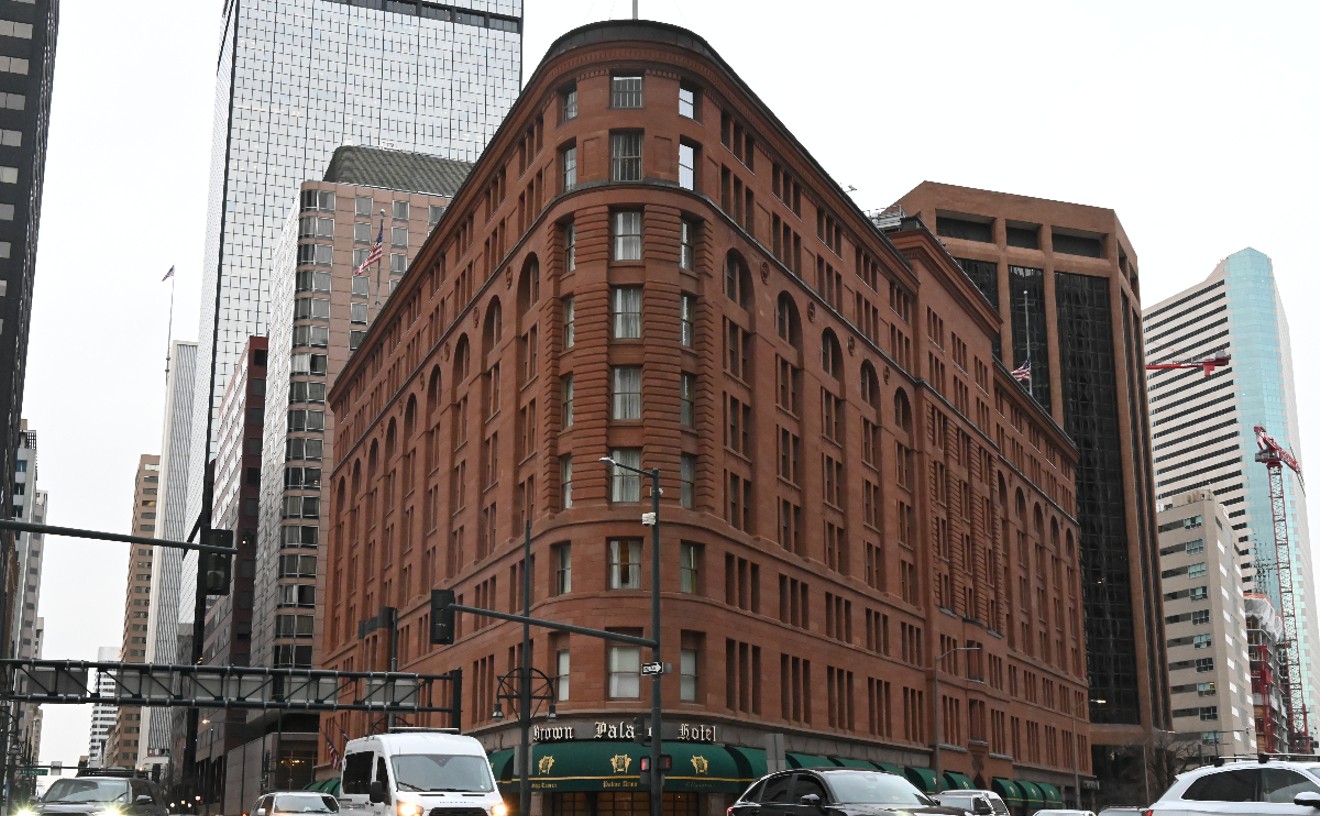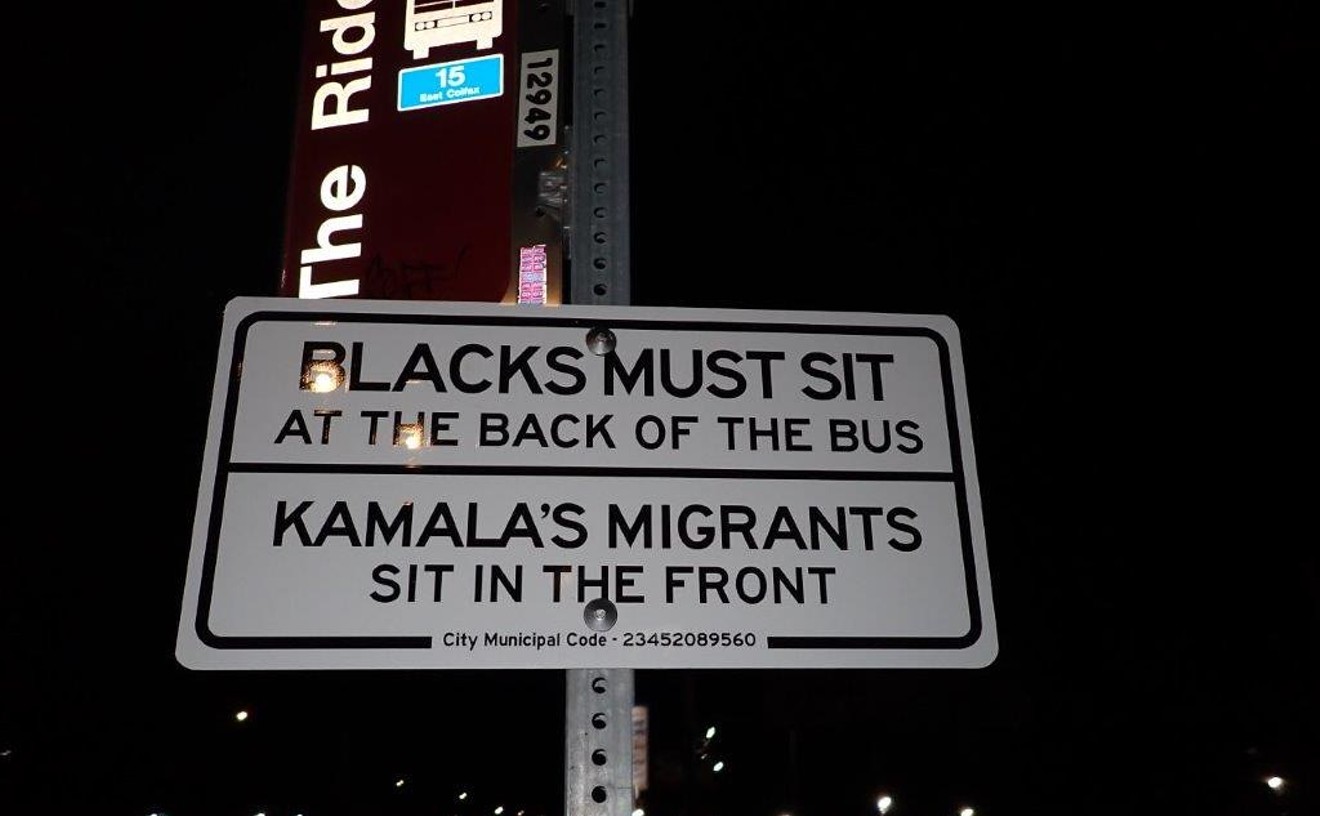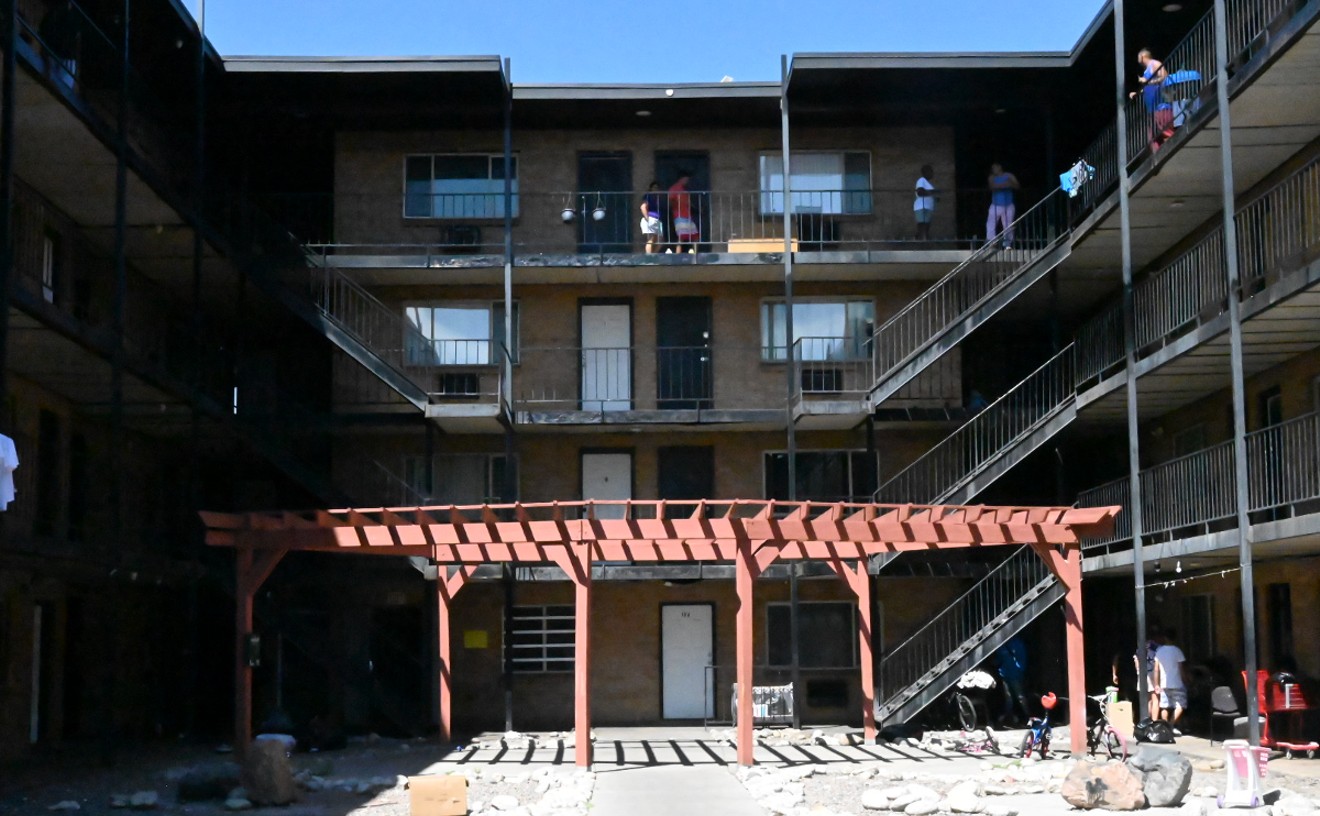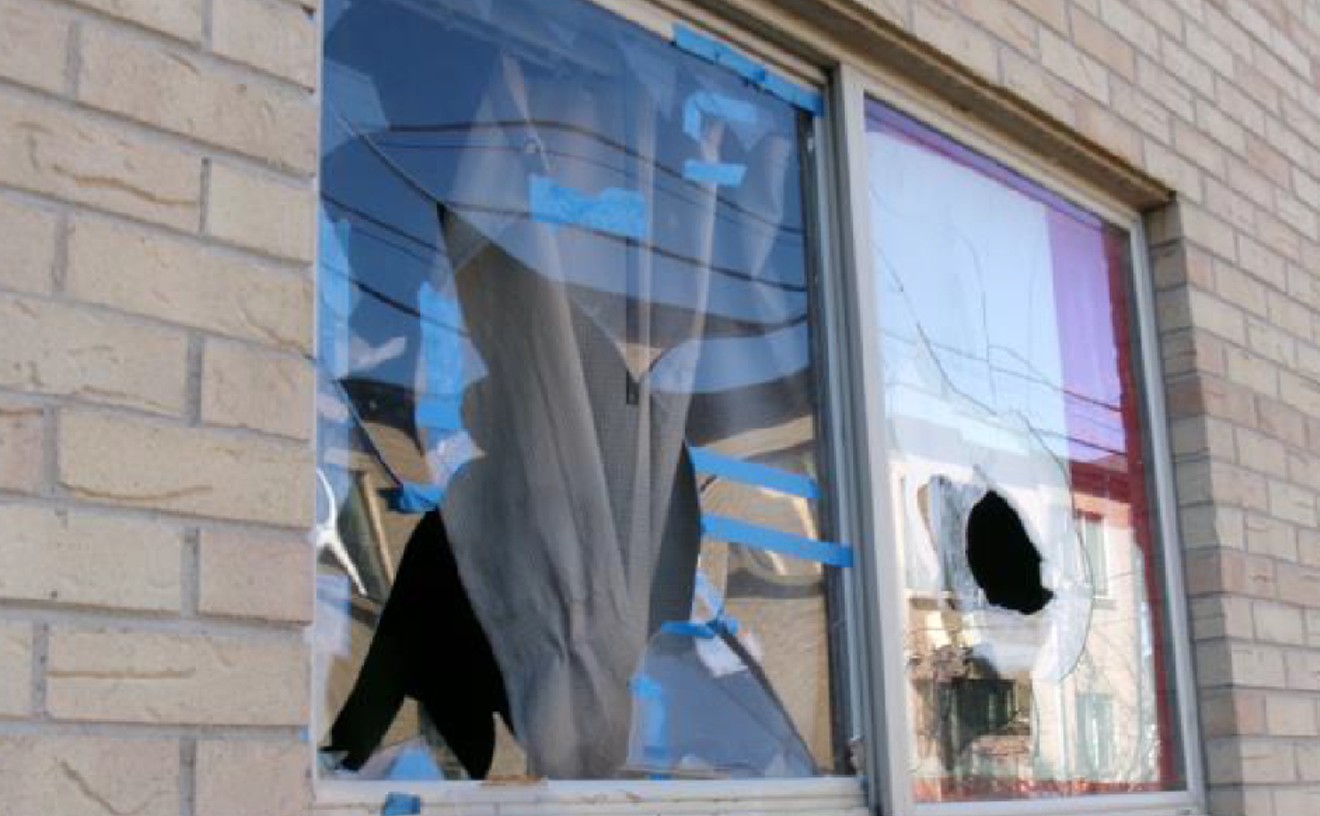Lawsuits continue to be filed by Denver protesters who say they were injured by police during the 2020 social justice demonstrations following the murder of George Floyd — and one of the latest is a complaint from Gabriel Schlough, who says that his chin was essentially blown off after he was struck by a projectile fired by officers on May 31, 2020.
City agencies typically decline to comment on such suits, and that's what happened when Westword asked the Denver Police Department about the Schlough case. The DPD's response: "The Denver Police Department does not comment on pending litigation." But a spokesperson with the Denver Department of Public Safety was more forthcoming, contending that neither Schlough nor his attorney cooperated with an investigation into the claims.
Late last month, the lawyer in Schlough's case, Andrew McNulty of Denver-based Killmer, Lane & Newman LLP, won a $500,000 settlement on behalf of college student Michael Acker, who was shot in the eye with a 40mm baton round during the 2020 protests. At the time, McNulty predicted that police brutality suits could ultimately cost Denver between $25 million and $50 million, since more than fifty have been filed to date, including class-action efforts that could include hundreds of plaintiffs.
As for the Schlough suit, filed on February 7, McNulty contends that the city gave him the cold shoulder, and not the other way around. "Every case I've filed, I've asked if they were interested in settling, and I've either received radio silence or been explicitly told, 'We're not interested,'" he says.
"Gabe is a public-health worker," McNulty notes. "He had done volunteer work in Africa before moving to Denver, and he had training in public health and rendering aid to people in distress, things of that nature. He saw what was happening in the first couple of days at the protests, with people being brutalized by police, and he thought he could help folks."
On May 31, 2020, "Gabe showed up when police were trying to clear people out," McNulty continues. "He saw an officer shooting a woman in the chest with a tear-gas canister, and went to try and help her. But as soon as he did, he got shot in the face by a KIP" — a kinetic-impact projectile. "And it blew his chin off." Nearly two years later, he says, "Gabe still has numbness in his face, and he'll have to get plastic surgery. And he was just trying to help people."
The events don't strike McNulty as accidental: "It seems to me that the directive from the Denver Police to their officers was, 'Go out there and shoot to maim — and if you have to shoot to kill, that's fine.'" KIPs are classified as "less-lethal" devices, but McNulty argues that "the makers of these weapons consider it to be deadly force when people get shot in the head, the face, the neck. They say, 'Don't shoot people in the face, because that could kill them.' And we saw people losing eyes, people getting hit in the head, people being knocked unconscious, Gabe losing his chin. It's grotesque."
Andrea Webber, records administrator for the Department of Public Safety, doesn't address the details of Schlough's assertions. "It would be inappropriate to comment specifically on the lawsuit that was filed," she says, adding, "We can share the following information regarding prior communication with the plaintiff's attorney and the Internal Affairs investigation into the related incident."
According to Webber, "An evidence preservation request was received by the Internal Affairs Bureau of the Denver Police Department from Mr. Schlough’s attorney, Andrew McNulty. The letter stated that Mr. Schlough was injured by projectiles fired by officers, specifically a 'gaping wound' to his shin [sic] and abrasion and bruising to his chest. Upon receipt of the request, the Internal Affairs Bureau opened an investigation. Numerous attempts to reach Mr. Schlough through his attorney were made by DPD via telephone with no response from Mr. McNulty. Without additional information and cooperation, the investigation could not move forward."
McNulty says he has little faith in such inquiries. He points out that "we've only seen three officers disciplined for the entirety of these protests, and the ones disciplined weren't even the ones who caused serious bodily injuries." (Officers Jesse Trudel, Diego Archuleta and Derek Streeter received brief suspensions over inappropriate use of pepper balls.)
He adds: "I think it's always helpful for folks to take accountability for their actions, and to try to make things right. The City of Denver has refused to do that."
Click to read Gabriel Schlough v. City and County of Denver, et al.

Audio By Carbonatix
[
{
"name": "Air - MediumRectangle - Inline Content - Mobile Display Size",
"component": "12017618",
"insertPoint": "2",
"requiredCountToDisplay": "2",
"watchElement": ".fdn-content-body",
"astAdList": [
{
"adType": "rectangle",
"displayTargets": "mobile"
}
]
},{
"name": "Editor Picks",
"component": "17242653",
"insertPoint": "4",
"requiredCountToDisplay": "1",
"watchElement": ".fdn-content-body",
"astAdList": [
{
"adType": "rectangle",
"displayTargets": "desktop|tablet"
},{
"adType": "rectangle",
"displayTargets": "desktop|tablet|mobile"
}
]
},{
"name": "Inline Links",
"component": "18838239",
"insertPoint": "8th",
"startingPoint": 8,
"requiredCountToDisplay": "7",
"maxInsertions": 25
},{
"name": "Air - MediumRectangle - Combo - Inline Content",
"component": "17261320",
"insertPoint": "8th",
"startingPoint": 8,
"requiredCountToDisplay": "7",
"maxInsertions": 25,
"watchElement": ".fdn-content-body",
"astAdList": [
{
"adType": "rectangle",
"displayTargets": "desktop|tablet"
},{
"adType": "rectangle",
"displayTargets": "desktop|tablet|mobile"
}
]
},{
"name": "Inline Links",
"component": "18838239",
"insertPoint": "8th",
"startingPoint": 12,
"requiredCountToDisplay": "11",
"maxInsertions": 25
},{
"name": "Air - Leaderboard Tower - Combo - Inline Content",
"component": "17261321",
"insertPoint": "8th",
"startingPoint": 12,
"requiredCountToDisplay": "11",
"maxInsertions": 25,
"watchElement": ".fdn-content-body",
"astAdList": [
{
"adType": "leaderboardInlineContent",
"displayTargets": "desktop|tablet"
},{
"adType": "tower",
"displayTargets": "mobile"
}
]
}
]











